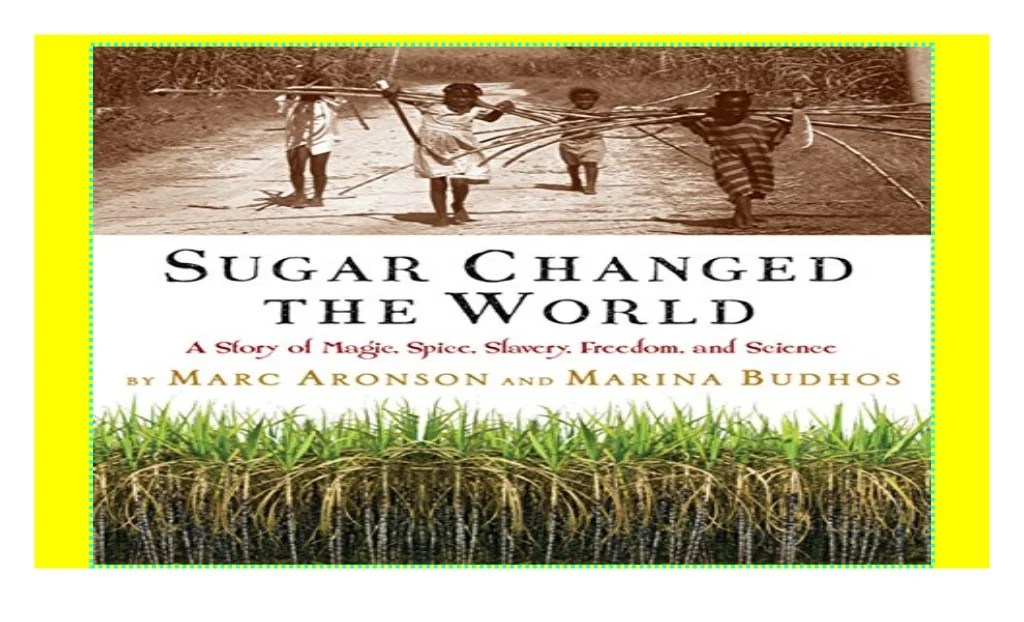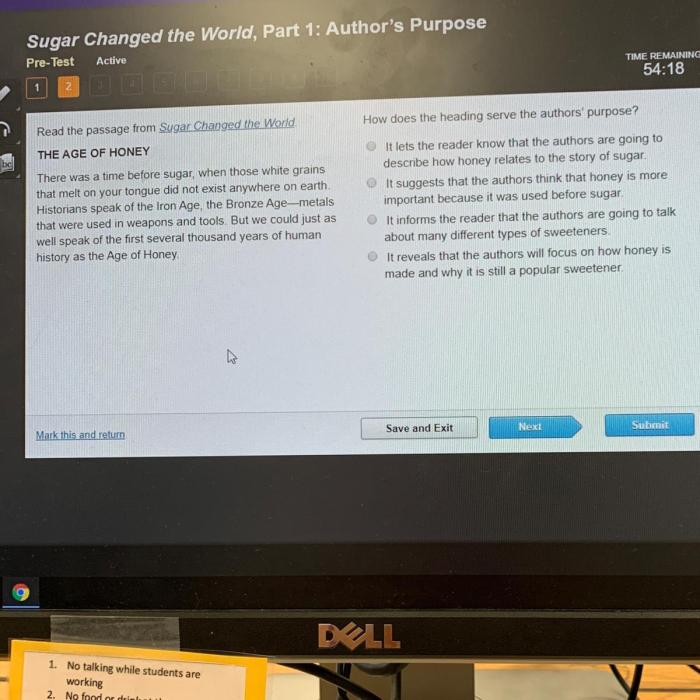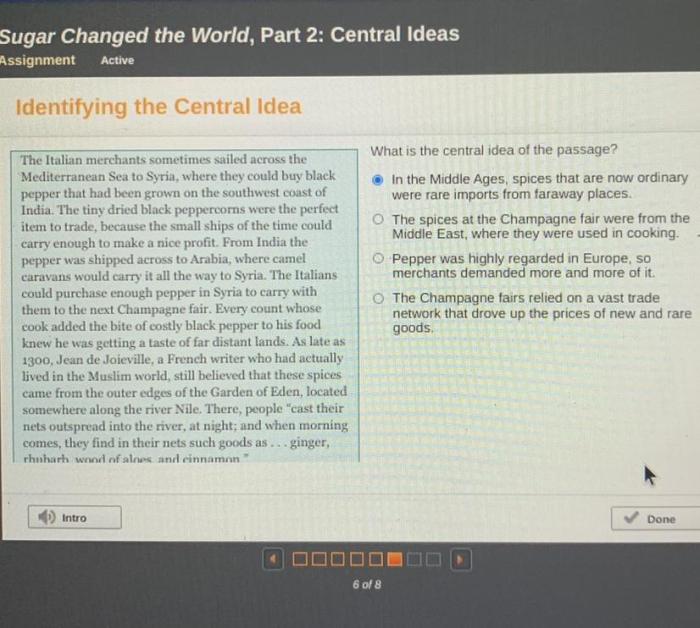Embark on an exploration of sugar changed the world unit test, a captivating journey that unveils the profound impact of this ubiquitous substance on human history, health, and society.
From its humble origins to its transformative role in global trade and cuisine, sugar has left an indelible mark on our world. Join us as we delve into its multifaceted legacy, uncovering the sweet and bitter truths that have shaped our understanding of this enigmatic ingredient.
Sugar Production and Trade

Sugar has been a pivotal commodity in global trade and history, shaping economies, cultures, and diets worldwide. Its cultivation and production have evolved significantly over time, from its origins in ancient India to its present-day industrial scale.
Historical Origins and Spread, Sugar changed the world unit test
- Sugarcane cultivation originated in India around 500 BCE, and its use as a sweetener spread throughout Asia.
- In the 7th century CE, Arabs introduced sugarcane to the Middle East and North Africa, where it flourished in plantations.
- During the 15th and 16th centuries, European explorers brought sugarcane to the Americas, establishing vast plantations in the Caribbean and Brazil.
Production Methods and Technologies
- Traditionally, sugar was extracted from sugarcane by crushing and boiling the stalks to produce a concentrated juice.
- In the 18th century, new technologies such as the vacuum pan and centrifugal separator revolutionized sugar production, increasing efficiency and purity.
- Modern sugar refineries employ advanced equipment for crystallization, purification, and packaging.
Economic Impact
- The sugar trade became a major economic driver, fueling the rise of plantations and the transatlantic slave trade.
- Sugar production led to the establishment of colonies and the exploitation of labor in the Americas.
- The economic power of sugar-producing regions shaped global trade and political dynamics.
Sugar’s Impact on Health and Nutrition
Sugar has a complex relationship with human health, affecting both nutritional status and the development of chronic diseases.
Nutritional Value and Effects
Sugar provides energy but lacks essential nutrients. Excessive consumption can lead to weight gain and metabolic disturbances.
Health Implications
- Obesity: Sugar consumption contributes to weight gain and the development of obesity, increasing the risk of cardiovascular disease and type 2 diabetes.
- Diabetes: High sugar intake can impair insulin sensitivity and increase the risk of developing type 2 diabetes.
- Heart Disease: Sugar consumption may contribute to inflammation and plaque formation in arteries, increasing the risk of heart disease.
Controversies and Debates
The health implications of sugar have been debated for centuries, with ongoing discussions about the optimal level of consumption and the role of sugar in chronic disease.
Sugar in Cuisine and Culture

Sugar has played a significant role in shaping culinary traditions and cultural practices around the world.
Culinary Uses
- Sweetener: Sugar is a primary sweetener in desserts, beverages, and confectionery.
- Preservative: Sugar inhibits microbial growth, making it an effective preservative in jams, jellies, and other foods.
- Flavor Enhancer: Sugar enhances the flavor of fruits, vegetables, and other foods, making them more palatable.
Cultural Significance
- Rituals and Celebrations: Sugar is often used in religious ceremonies, festivals, and celebrations, symbolizing joy, abundance, and prosperity.
- Social Customs: In some cultures, offering sugar to guests is a gesture of hospitality and friendship.
- Food Innovations: Sugar has enabled the development of new culinary techniques, such as baking, pastry-making, and confectionery.
Sugar and Social and Economic Inequality: Sugar Changed The World Unit Test

Sugar production and consumption have been intertwined with social and economic disparities, highlighting the complex relationship between a commodity and its societal impact.
Exploitation of Workers
- Plantation labor: Sugar plantations have historically relied on exploitative labor practices, including slavery and indentured servitude.
- Low wages and poor working conditions: Sugar workers often face low wages, inadequate housing, and limited access to healthcare.
- Health risks: Sugar workers may be exposed to hazardous chemicals and pesticides, leading to health problems.
Environmental Impact
- Deforestation: Sugarcane cultivation requires large areas of land, leading to deforestation and habitat loss.
- Water pollution: Sugarcane cultivation can result in water pollution from fertilizer runoff and pesticide use.
- Soil degradation: Intensive sugarcane farming can lead to soil degradation and nutrient depletion.
Global Economic Relationships
- Power dynamics: The sugar industry has historically shaped global economic relationships, with sugar-producing countries often dependent on wealthier nations.
- Fair trade: Fair trade initiatives aim to address social and economic inequalities in the sugar industry, promoting fair wages and sustainable practices.
- Subsidies and trade policies: Government subsidies and trade policies can influence the global sugar market, affecting the livelihoods of sugar producers and consumers.
Questions Often Asked
What is the significance of sugar in world history?
Sugar has played a pivotal role in global trade, shaping economic relationships and power dynamics for centuries.
How has sugar consumption impacted human health?
Excessive sugar intake has been linked to a range of chronic diseases, including obesity, diabetes, and heart disease.
What are the ethical concerns surrounding sugar production?
The history of sugar cultivation is marred by exploitation and environmental degradation, raising questions about the social and economic costs of this industry.